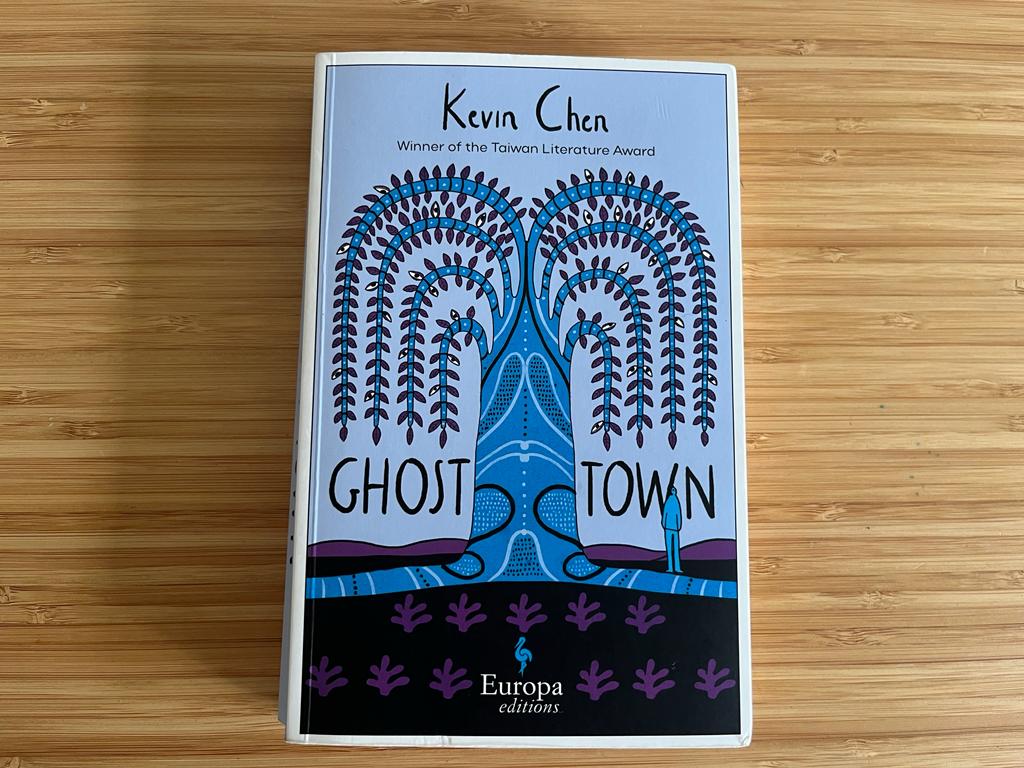In „Ghost Town,“ bestselling Taiwanese author Kevin Chen delves into the nuanced tapestry of family secrets, the quest for one’s true identity, and the poignant clash of diverse cultures. The novel blends the author’s personal journey with fiction and reality.
Family is a complex matter. There are disagreements, reconciliations, but sometimes the wounds run too deep. People experience traumas that are hard to forget, revealing once again a dysfunctional family whose unity is hindered by injuries and personal secrets. Taiwanese author Kevin Chen has crafted an impressive family novel titled „Ghost Town,“ a fictional narrative based on autobiographical experiences.
The central protagonist is Keith, the youngest son of a traditional Taiwanese family with an older brother and five sisters. He escapes the oppression in his village to Berlin, hoping to be accepted as a young gay man.
The novel unfolds a decade later as Keith is released from prison for killing his boyfriend. He is about to return to his family’s village where the Ghost Festival is held every summer. His parents are gone, his sisters married, mad, or dead, and there is nothing left for him there. Throughout the story, the reader learns what tore this family apart and, more importantly, the truth behind the murder of Keith’s boyfriend.

Like the protagonist in the novel, the author, now 48 years old, hails from the village of Yongjing in the west of the island. Kevin Chen grew up as the youngest child with seven sisters and a brother. The parents desperately wanted a son, and it took seven sisters before the first son was born. Why did they still want a second son? „I was born in the Year of the Chinese Dragon. Dragon children, it is said, bring luck. My parents thought that they might be blessed with another son in the Year of the Dragon. And so, I came into the world,“ says Kevin Chen.
Similar to the protagonist, Kevin Chen is gay. He, too, wanted to escape the confines of this small village as quickly as possible. After high school, he moved to Taipei at the age of 18 to study theater. The desire to move even farther away persisted. In 2004, he received an offer to work as a foreign correspondent in Berlin for a Taiwanese TV station, even though he couldn’t speak German at the time. Since then, he has made the German capital his home. „Berlin helped me get to know myself better,“ he says. „Even though it’s a city with over three million residents, it’s relatively quiet. Taipei, on the other hand, never sleeps. I still enjoy coming back here, I have many friends.“
While the novel is fictional, it is deeply personal. At the age of 33, Chen attempted to write a novel about his family for the first time but only managed to produce 20 pages. „I simply couldn’t do it, I wasn’t ready.“ Ten years later, it was time, and after six months, the novel was complete. „I had the necessary distance.“ In 2020, his book was awarded the prestigious Taiwan Literature Award and translated into twelve languages. A German translation is set to be released this year.
Chen toured with „Ghost Town,“ including visits to the USA. Many readers can identify with the protagonist—a young, homosexual man growing up in a small village, facing resistance from family, the local community, or school. „My story can happen in any small village,“ he says. Even though the Berliner by choice talks to people from around the world about his book, he doesn’t discuss it with his family. „We don’t show emotions, don’t talk about feelings. We express our emotions when we eat. That’s our way of emotional communication,“ says Chen. Even though his family has bought all his books, he would never ask them about it. Neighbors or friends would take on that task, wanting to know if what is described in the book actually happened.
One anecdote makes Kevin Chen smile. His cousin had read the book and approached him in distress, asking, „Did you really kill your boyfriend?“ He had to reassure her that the novel was fiction. Yet, fiction can still contain a spark of reality, as the story is ultimately based on his life.
As the title of the book suggests, it also involves ghosts and is narrated with a multitude of voices: the living and the dead. In Taiwan, the seventh month of the lunar calendar is dedicated to spirits and the deceased. The Gate of the Ghosts opens on the first day of the Ghost Month and closes on the last day, when the spirits enter through the gate and roam the world of the living. People typically set up altars, prepare offerings, and burn incense and sticks for them. Additionally, on the fifteenth night of the month, the Ghost Festival takes place, known as Zhongyuan Festival in Taoism and Yulanpen Festival in Buddhism.
In Taiwanese daily life, dealing with ghosts is entirely natural. Kevin Chen remarks, „Before entering a hotel room, we knock on the door because we believe there are ghosts in all rooms. It’s a way of showing respect and ensuring peaceful cohabitation.“ Like many other children in the countryside, Chen never learned to swim because his mother told him there was a ghost in the water, making it too dangerous. „Many still believe in it today,“ says Chen.
After an extended stay in Taiwan, Japan, and the USA, Chen returns to Berlin. „I miss the city, even the „Berliner Schnauze“. I have no problem when people are unfriendly. In a way, I even like it.“

